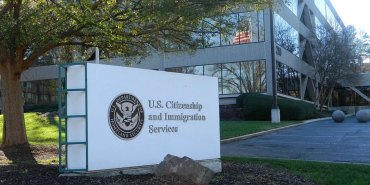Renewing Your UK Skilled Worker Visa in 2024: What You Need to Know

The Skilled Worker Visa has become an essential immigration pathway for skilled professionals seeking to establish their careers in the United Kingdom.
In early 2024, changes were introduced to the UK's immigration policy under the Labour government led by Prime Minister Rishi Sunak. These amendments, aimed at reducing high net migration levels, have substantially revised the eligibility criteria for both new applicants and existing visa holders. One of the most significant changes is the increase in the minimum income threshold. From April 4, 2024, the UK government raised this threshold for new applicants by 48%, bringing it to £38,700 per annum for most job roles.
This increase has raised concerns about the long-term attractiveness of the skilled worker route. For existing visa holders seeking to extend their stay, a different salary requirement of £29,000 has been established. This figure aims to provide a transitional adjustment while minimizing the impact on current visa holders' living standards, especially considering previous salary requirements which had recently increased from £25,600 to £26,200. The elevated income thresholds may create difficulties for some skilled workers in extending their visas and place a considerable burden on employers.
Companies may need to revise their salary structures to accommodate these changes, and those unable to adjust may have to cease sponsorship, adding confusion to workforce management in an already fluctuating economic landscape. In addition to the salary threshold modifications, changes have been made to the 'going rates' for specific occupation codes. These rates have been significantly increased to align with the 50th percentile level reported by the Office for National Statistics in their Annual Survey Hours and Earnings for 2023. However, this change does not apply to skilled workers with visas obtained before April 4, 2024, who will continue to navigate the complexities of the 25th percentile earnings derived from 2021 ASHE data when applying for extensions.
The approach toward supplementary employment has also been revised. Previously, skilled workers were limited to engaging in supplementary jobs only within the same occupation code as their full-time sponsored employment. This constraint has been loosened, allowing skilled workers to participate in supplementary employment across any eligible occupations, provided such engagements adhere to the Home Office's employment conditions. This broadening of opportunities affords skilled workers greater flexibility to enhance their earnings and skills outside their primary employment.
Eligibility criteria for those wishing to extend their Skilled Worker Visa remain stringent. Applicants must maintain the same job and employer that initially granted their visa, with their employment falling under the same occupation code. They must also obtain a new certificate of sponsorship and provide proof that salary requirements are met. Supporting documentation is essential during the extension process, including current identification, proof of employment, employment details, and confirmation of English language proficiency at the B1 level on the Common European Framework of Reference for Languages scale.














Add new comment